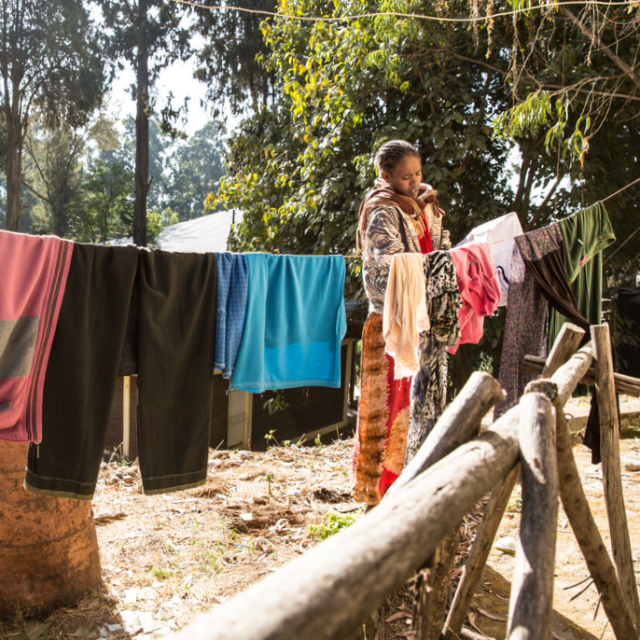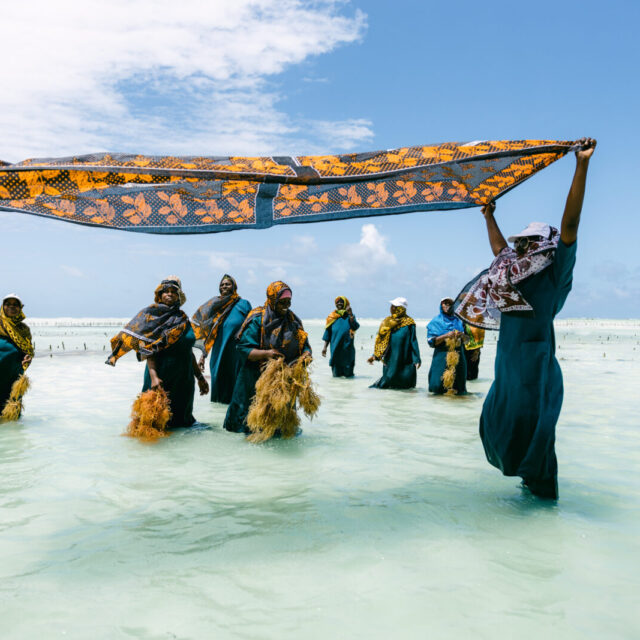Facts from our Africa COVID-19 Tracker
- 21.3 million people require humanitarian aid.
- 1.8 million people are internally displaced.
- 792,000 refugees are seeking safety.
- Ranked 84th of 195 countries for capability to prevent and mitigate epidemics.
A socioeconomic crisis
As Africa braces for the spread of the latest Ebola outbreak, the COVID-19 pandemic has already placed Ethiopia in an acute crisis. COVID-19 is causing a loss of income for many families who have been simultaneously affected by irregular rainfalls and outbreaks of cholera, measles, and yellow fever. These social, health, and economic disasters have culminated into a socioeconomic crisis.
Additionally, a new conflict between the government and the Tigray People’s Liberation Front of Northern Ethiopia is increasing instability. Millions of people have been displaced by the unrest and thousands have been killed. The fighting started in November and is adding to the country’s economic devastation and inability to repay debt. With an election looming, ACLED have listed the Ethiopian conflict in their top 10 to worry about in 2021.
Economic impact
Since the start of 2020, the number of people in need of humanitarian aid has already jumped from 7 million to 16.5 million. This is mainly down to the growing economic uncertainty and unemployment that is linked to the pandemic. The International Monetary Fund predicts that Ethiopia’s economic growth in 2021 will continue to drop from 1.9% in 2020 to zero in 2021.
Ethiopia has also seen the largest locust invasion in the past 25 years, which has impacted the food security of about 1 million individuals. The outbreak has destroyed hundreds of thousands of acres of crops and is affecting the region’s food insecurity. This is on top of the COVID-19 restrictions, which are simultaneously intensifying food insecurity.
COVID-19’s impact on women and girls
COVID-19 is pushing women and girls into unpaid care work, and countrywide social distancing measures have led to labour shortages in the agriculture sector. For example, women account for a large proportion of coffee processing workers, who have been unable to work safely and are challenged by the implementation of social distancing measures.
We have seen from the Ebola crisis that young girls are disproportionately affected by emergencies. Efforts to stop the Ebola epidemics led to school closures and undermined strategies to end child marriage. COVID-19 has done the same. In the medium to long term, the threat of child marriage is far greater when communities are affected by economic shocks. The current pandemic is limiting access to essential services such as health, education, and child protection. These cuts to essential services are forcing children into marriage.
In Ethiopia the rate of girls marrying before their 18th birthday is the fourth highest in the world. Girls Not Brides estimate that there are over 2 million child brides in the country. COVID-19 is quickly increasing this number by taking children out of school and forcing many families into poverty. School closures in Ethiopia happened in mid-March 2020, sending 26 million children home, where girls are facing a greater risk of being illegally forced into marriage. The continued violence in the Tigray region and concerns about COVID-19 has led to 1.3 million out-of-school children.
Gender-based violence
Ethiopia has made significant strides toward gender equality in the past decade. The country’s first female president, Sahle-Work Zewde, has used her platform to advocate for gender equality. At the Fourth World Conference on Women, she urged world leaders to have a gender lens in navigating the pandemic. She proclaimed that “while women are in the frontlines fighting against this pandemic, they are also being pushed to the edges because of its multifaceted impacts.” She went on to highlight the significant progress that Ethiopia has made with empowering women.
But globally, COVID-19 has reversed the limited progress towards gender equality. In Ethiopia, various sources have reported an increase in gender-based violence, due to the extended quarantine and other social distancing measures that are forcing some women to stay home with their abusers. Services that support domestic violence survivors have been interrupted or made inaccessible by the response to the global pandemic. At the same time, extreme poverty is exasperating the vulnerabilities of women and girls in Ethiopia.
Additionally, evidence suggests that women, especially women in single female-headed households, are at risk of sexual exploitation and abuse by humanitarian workers, government officials, or armed guards. The virus is putting women in Ethiopia at risk of being forced to exchange sex for supplies.
This is a global pandemic that pays no attention to borders, wealth, or status. As such a global response is the only way forward to protect vulnerable people around the world.



